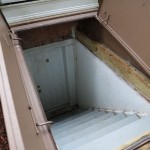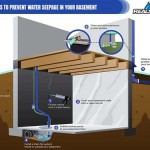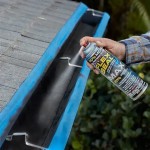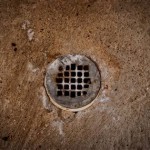Ways To Finish a Concrete Basement Floor
Finishing a concrete basement floor enhances its appearance, increases its comfort, and improves its durability. Several options exist, each offering distinct advantages and disadvantages. Choosing the right finish depends upon the homeowner's budget, desired aesthetic, and the intended use of the basement space.
Painting
Painting is the most economical option for finishing a concrete basement floor. It offers a simple way to add color and brighten the space. However, paint is susceptible to chipping and peeling, particularly in high-moisture areas. Epoxy-based paints offer improved durability compared to standard latex paints.
Epoxy Coatings
Epoxy coatings provide a tough, durable, and moisture-resistant finish for concrete basement floors. They resist staining, chemicals, and abrasion, making them suitable for workshops, garages, and utility areas. Epoxy coatings come in a variety of colors and can even be customized with decorative flakes or chips.
Staining
Concrete stains penetrate the concrete surface, creating a permanent color that won't chip or peel like paint. Acid-based stains react chemically with the concrete, producing a mottled, variegated effect. Water-based stains offer a more consistent and predictable color. Staining provides a natural, low-maintenance finish.
Concrete Sealers
While not a finish in themselves, concrete sealers play a crucial role in protecting bare concrete and enhancing the performance of other finishes. Sealers prevent moisture penetration, reduce dusting, and protect against staining. They can be applied to bare concrete or over painted or stained surfaces. Various types are available, including acrylic, polyurethane, and epoxy sealers.
Overlays
Concrete overlays are thin cementitious coatings applied over existing concrete to create a fresh, smooth surface. They can be used to repair minor imperfections, level uneven floors, or add decorative textures. Overlays can be stained, painted, or sealed to achieve the desired finish.
Rubber Flooring
Rubber flooring provides a comfortable, resilient, and water-resistant surface ideal for basement gyms, playrooms, or workshops. It's available in tiles, sheets, or rolls and offers good insulation and sound absorption properties. Rubber flooring is easy to clean and maintain.
Vinyl Flooring
Vinyl flooring comes in a wide array of colors, patterns, and textures, offering design flexibility for basement finishing projects. It’s available in sheets, tiles, and planks, making it easy to install over concrete. Vinyl flooring is relatively inexpensive, durable, and water-resistant. Some vinyl flooring options even mimic the look of hardwood or tile.
Laminate Flooring
Laminate flooring offers the aesthetic appeal of hardwood at a lower price point. It’s made from a composite material with a photographic layer that simulates the look of wood. Laminate flooring is relatively easy to install with a click-lock system. However, it's not as moisture-resistant as other options and requires a proper vapor barrier when installed in basements.
Engineered Hardwood
Engineered hardwood flooring consists of a thin layer of real hardwood veneer bonded to a core of plywood or high-density fiberboard. It’s more stable and less susceptible to moisture damage than solid hardwood, making it a suitable option for basements in drier climates. Proper acclimation and a moisture barrier are essential for successful installation.
Tile Flooring
Ceramic and porcelain tile offer durability, water resistance, and design versatility for basement floors. They’re available in a wide range of sizes, colors, and styles. While tile itself is waterproof, the grout lines can be susceptible to moisture penetration, requiring proper sealing. Installing tile over concrete requires a level surface and a suitable underlayment.
Carpet
Carpet adds warmth and comfort to a basement space. It provides insulation and sound absorption, creating a more inviting atmosphere. However, carpet can be susceptible to moisture damage and mold growth in damp basement environments. Opting for moisture-resistant carpet padding and ensuring adequate ventilation is crucial when considering carpet for a basement floor.
Interlocking Tiles
Interlocking tiles, often made from plastic or rubber, are a quick and easy way to finish a basement floor. They are simple to install and can be easily removed and replaced if damaged. These tiles offer good insulation, cushioning, and resistance to moisture. They are commonly used in basement play areas, workshops, and home gyms.

How To Stain Concrete Basement Floor Diy Guide

Diy Basement Floor Stain And Finish 2 Colors Without Etching Youtube

A Guide To Stained Concrete Basement Floors

How Should I Finish My Concrete Basement Floor Painted Floors Paint

15 Diy Basement Flooring Ideas Affordable Options For Basements

Polished Concrete Flooring Options For Your Basement Duraamen

The Ultimate Guide To Staining A Basement Floor Semigloss Design

What Is The Best Flooring To Put On A Concrete Basement Floor

How To Paint A Concrete Floor Southern Hospitality

Stained Concrete Basement Floor Ideas








